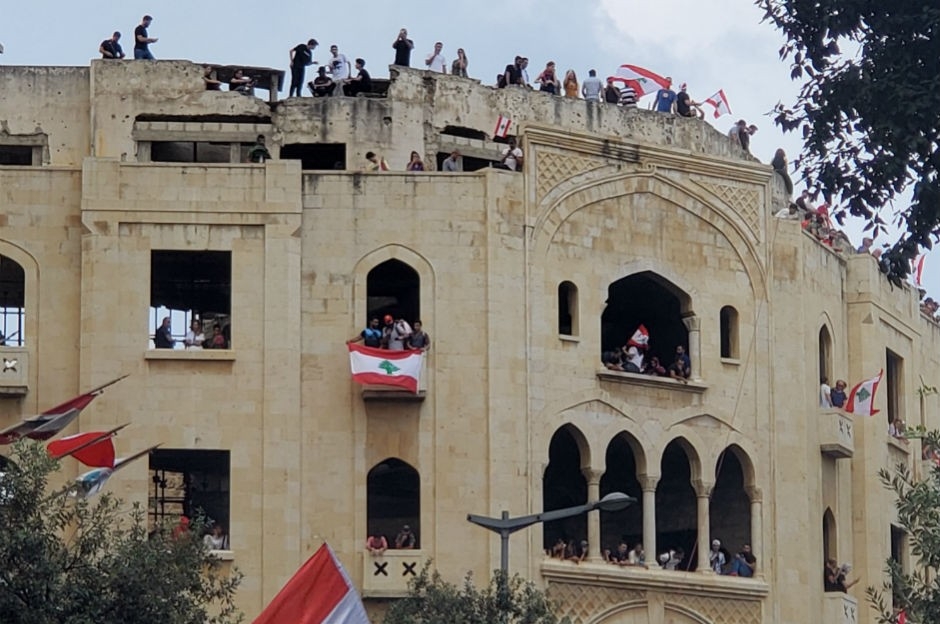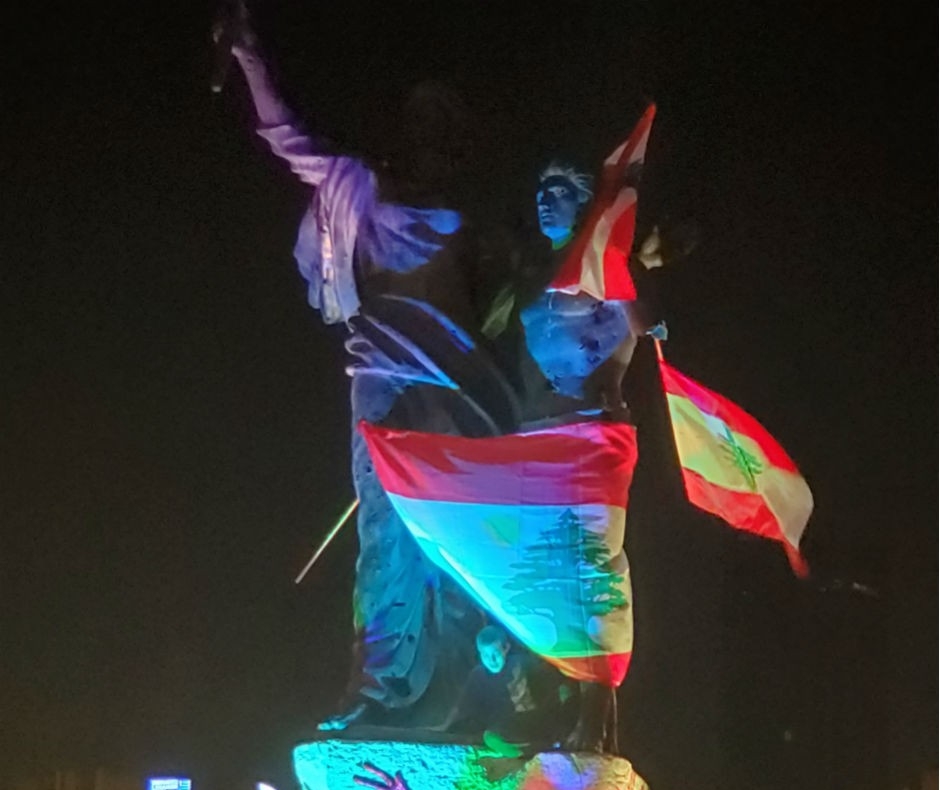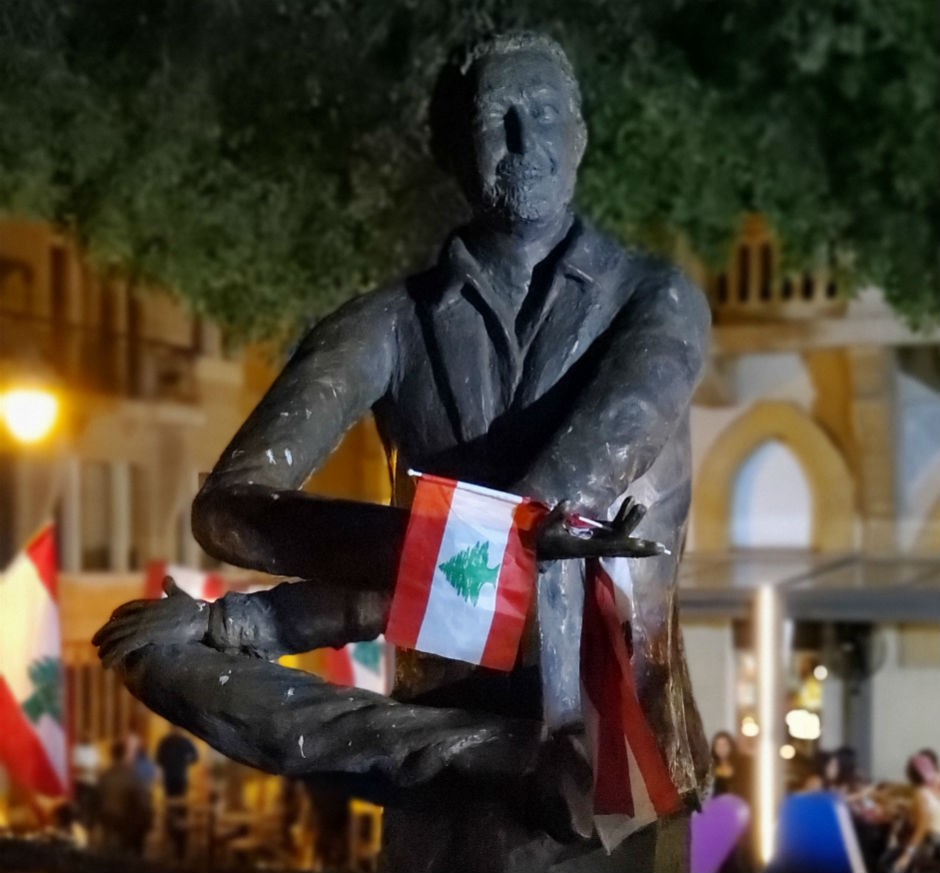With over 20 years of international experience working in the child welfare sector, Zeina Ismail-Allouche has contributed to international initiatives promoting family strengthening and participated in the drafting of UN Guidelines for the Alternative Care for Children. Zeina has co-written a book chapter on the challenges facing indigenous youth coming of age out of care in Canada. She has published many articles on the reform of the child welfare sector.
 Photos by Zeina Ismail-Allouche
Photos by Zeina Ismail-Allouche
I collected my luggage and walked outside the airport. It was chaos; the smell of the burning tires was making the air very heavy. I wished not to feel, not to see, not to breathe.
Over the phone, the taxi driver said he would not be able to reach the airport.
All the roads are blocked. Protestors are burning tires on the streets.
How can I reach back to my home?
You will have to walk...
I crossed the first roadblock and a motorcycle came towards me. The driver put my bag between his legs and asked me to ride behind. I watched the protesters ripping whatever they could from the walls of a construction site nearby and flung it at the blaze to feed the fire.
Is it safe?
Trust me, today the city is ours!
On the night of Friday, October 18, the night of my arrival to Beirut, protestors blocked routes with overturned dumpsters and burned tires. They set fires on the airport road before Lebanese troops arrived to clear the route. Since then, the protests have paralyzed the country but have been largely peaceful.
Lebanon’s capital, Beirut, as well as many other cities in the country, were echoing the chants of protesters: “Kellon Yahni Kellon.” This means all of them are corrupted. Thousands flooded the streets to rally against government corruption. The economic injustice has become a plague that pushed people out on roads. “We have nothing to lose,” said a young woman walking next to me.

Beyond the shameless corruption, an outrageous wave of systemic racism was being propagated by the government officials against the refugees in Lebanon, mainly Palestinian and Syrian refugees. They needed a scapegoat to justify their failure to ensure basic rights such as electricity, safe water, paved roads, health services, among others.
Corruption in Lebanon has many faces and the judiciary system is one of them. More specifically, women in Lebanon suffer from discriminatory laws when it comes to divorce and the right to custody. Most of the time, women lose their children upon divorce based on the religious laws that govern the personal act.
Lately, women and girls have been killed in Lebanon under the pretext of so-called ‘honour crimes’ in an attempt to ‘cleanse’ the shame that befalls male members of families when their female relatives do not adhere to cultural conventions and ‘rules’ that are supposed to govern a woman’s proper sexual behavior. Unfortunately, many fathers abandon their children and place them in the child welfare system.
The corruption has forced 28,000 children in Lebanon — 2 per cent of all children — into the child welfare system not because they are orphans or in need of protection. These kids wound up in orphanages, where they were subject to all sorts of rights violations, mainly because of poverty — despite their best interests.
Officially, the war in Lebanon, which started in 1975 and ended in 1990, resulted in an estimated 120,000 fatalities. Today, 76,000 people remain displaced within Lebanon, some 17,000 are still missing and 10,000 are victims of illegal intercountry adoption. Those who were heading the militias during the 25 years of war are currently leading the country. In that sense, many people feel that the war is still going on.
Like the 2 million protestors, I found myself on the streets shouting out loud against corruption. I was calling for a civil law to ensure the rights of women so kids could maintain their Lebanese nationality even when their mothers married indviduals who is non-Lebanese. Like all the protestors, I had my agenda!
Revolution against harassment. Revolution against rape. Revolution against ripping a child away from their mother. Revolution against racism. Revolution against the involvement of religious leaders in the child welfare system.
For 10 days, I was on the streets dreaming of a better day for Lebanon.
The smell of the burning tires was overridden by the wind of change. Ten days of laughter, humour, sarcasm and nonviolence reconciled me with Lebanon and the beautiful faces of my city, Beirut.
The words of my hero, the motorcycle driver who took me back home on that outrageous night, still resonate in my heart.
Trust me... Today the country is ours!

About the author


